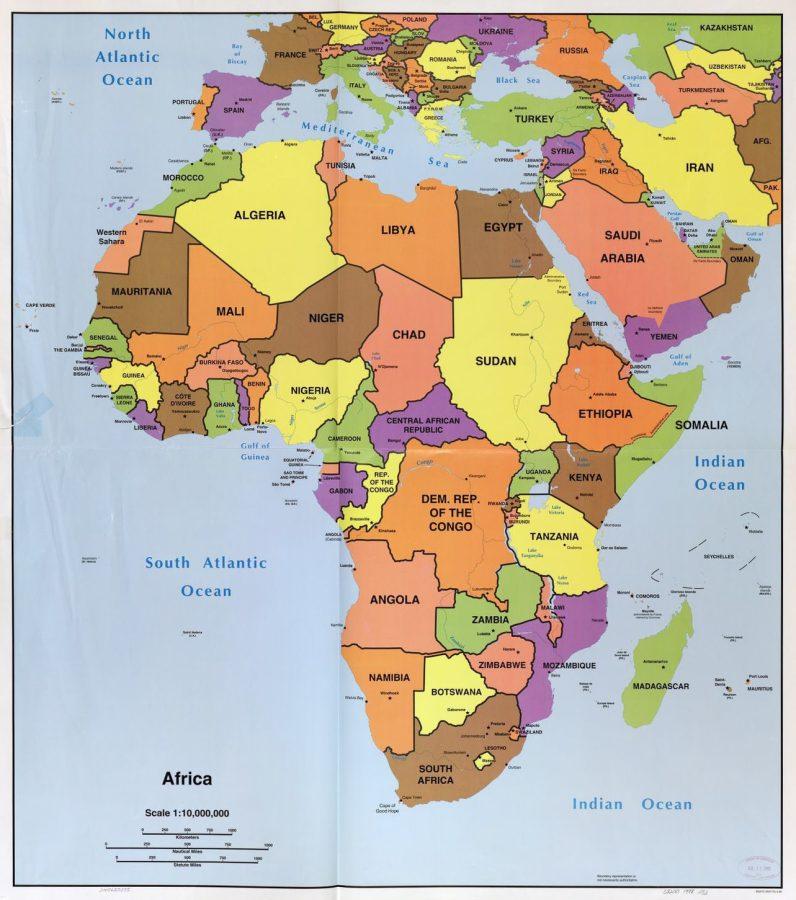Think of the word colonialization. You might imagine European settlers taking over Native American land. You might imagine plantations and slavery. Something you might not imagine is large infrastructure projects. This is the reality in Africa in the 21st century as China attempts to colonize Africa by funding and building infrastructure projects and saddling African nations with debt. While this is not as direct as European colonization seen throughout history, this indirect version of colonialization has widespread ramifications on the future of the African continent as we know it.
As college students, it’s easy to be disconnected from the reality of international relations, international trade and diplomacy. However, the actions made by world superpowers, such as the United States and China, have widespread ramifications that go beyond national sovereignty. China’s aggressive steps to cripple Africa with debt, as will become clear in this article, have widespread ramifications that impact the globe, from themes such as human rights, climate change and economic inequality. It is critical to call out not only our own nation’s wrongdoings, but also the actions of other influential countries.
There is ongoing debate regarding this issue, but based on the recent geopolitical, diplomatic and economic activity done by China, their motivations for lending money to African countries are not pure. The head of Britain’s foreign intelligence agency M16, Richard Moore, mentioned that China utilizes what he called “debt traps” to “gain leverage over other countries” (1). While these debt traps are hotly debated by China and even African countries rejecting this notion, the diplomatic ramifications of receiving aid from China are undeniable.
According to the text, “China’s Foreign Aid and Investment Diplomacy, Volume II,” author John F. Copper explains that China uses foreign aid to assert its foreign policy preferences on developing countries. The abstract asserts, “China has given economic help to a host of developing countries in order to reduce Taipei’s formal diplomatic ties, diminish its status as a nation-state, isolate Taiwan from the international community, and compel Taiwan’s government to negotiate with China for the island’s reunification” (2). The research indicates that China uses its influence, wealth and loans to African countries in an effort for them to end diplomatic ties with Tawain, also called Chinese Tapei.
Chinese loans to African countries are technically considered to be unconditional. Western aid generally comes with conditions such as democracy or human rights requirements. Chinese aid does not come with such restrictions, paving the way for potentially problematic human rights situations. While China does use its aid to influence states, the influence is not explicitly written into the terms of the loan. As such, this can lead to less than desirable situations with the money from the loan. As The Washington Post reports, “A recent study found that African leaders are almost three times more likely to spend Chinese development aid in areas where they have ethnic ties, not necessarily where aid is most needed” (3). While this no strings attached aid gives more freedom to African leaders, it can lead to mismanagement of funds. This furthers China’s influence in the region, as African countries can get saddled with debt from the People’s Republic of China.
When nations lend money to each other, it often comes with strings attached, whether it is designed to win over another nation diplomatically or to assist their allies. As China continues to expand its influence in Asia and Africa, it is important that we continue to observe these developments and understand their motivations and consequences.

